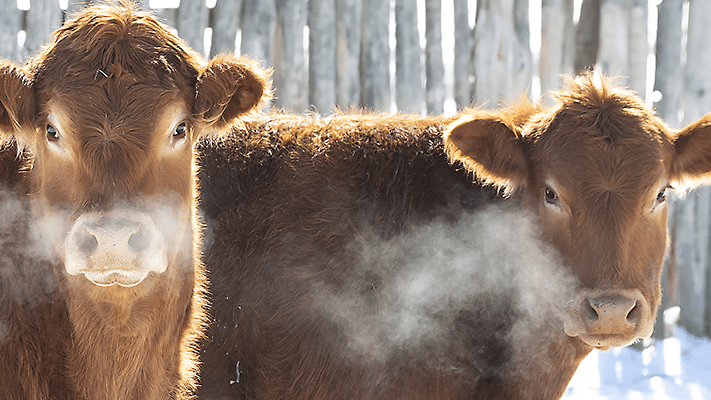Importing Live Cattle and Bison from Canada to the United States

USDA APHIS regulates the importation of all ruminants and their germplasm (embryos/oocytes, semen, cloning tissue) to prevent the spread of animal diseases. Ruminants include all animals which chew the cud, such as cattle, buffaloes, sheep, goats, deer, antelopes, camels, llamas and giraffes.
Requirements
Northern Border Ports
- Idaho: Eastport
- Maine: Houlton and Jackman
- Michigan: Detroit, Port Huron, and Sault Ste. Marie
- Minnesota: Baudette
- Montana: Opheim, Raymond, and Sweetgrass
- New York: Alexandria Bay, Buffalo, and Champlain
- North Dakota: Dunseith, Pembina, and Portal
- Vermont: Derby Line and Highgate Springs
- Washington: Oroville and Sumas
Air/Ocean
- Newburg, NY
- Miami, FL
- Los Angeles, CA
** Please see 9CFR 93.403 for list of special/limited ports of entry
- Protocol Wood Bison from Canada (334.78 KB)
- Protocol Cattle and Bison from Canada (258.63 KB)
- Health Certificate: Live Cattle and Bison Import from Canada (174.42 KB)
Guidance specific to the importation of Cattle/Ruminants from Canada
- Destination Inspection and Country Mark Verification (149.76 KB)
- Destination Facility Approval Requirements (127.16 KB)
- Port of Entry Pilot Project Information
Update: Import Alert: Pre-Shipment Approval and Destination Inspection for Calf-Only Shipments from Canada (govdelivery.com)
Highgate, VT (VS.highgate.springs.POE@usda.gov)
Alexandria Bay, NY (vs.alexandria.bay.poe@usda.gov)
Niagara Falls, NY (vs.niagara.poe@usda.gov)
Port Huron, MI (VS.Port.Huron.POE@usda.gov)
A permit and export health certificate are required to import bovine embryos from Canada.
Health Certificate: Cattle and Bison Embryos and Oocytes Import from Canada for Reproduction (246.98 KB)
A permit is not required to import bovine semen from Canada transported by land; an export health certificate must accompany the shipment and the port of entry into the United States must be notified at least three days in advance. VS Contacts: Live Animal and Animal Product Exports
Health Certificate: Bovine Semen Import from Canada for Reproduction (123.21 KB)
What You Need To Know
- U.S. transits are classified as shipments presented to a U.S. port of entry for conveyance purposes to then be transported to a destination country shortly after.
- Please note that any animals and their germplasm transiting the United States must not transit countries with questionable disease statuses prior to reaching a U.S. port of entry.
- All transits require a contingency plan. Submit your contingency plan with your permit application (VS 17-129 (211.74 KB)) to laipermits@usda.gov. To submit an import permit electronically, visit APHIS eFile.
- If you are applying to import live animals, semen, and embryos, you may submit applications by email to laipermits@usda.gov.
Contact Us
Live Animal Imports
For questions about import permits or permit applications:
Live Animal Import Permit Team
Email: laipermits@usda.gov
Phone: 301-851-3300
For general questions related to the import of a live animal:
Live Animal Import and Export
Email: laie@usda.gov
Phone: 301-851-3300

